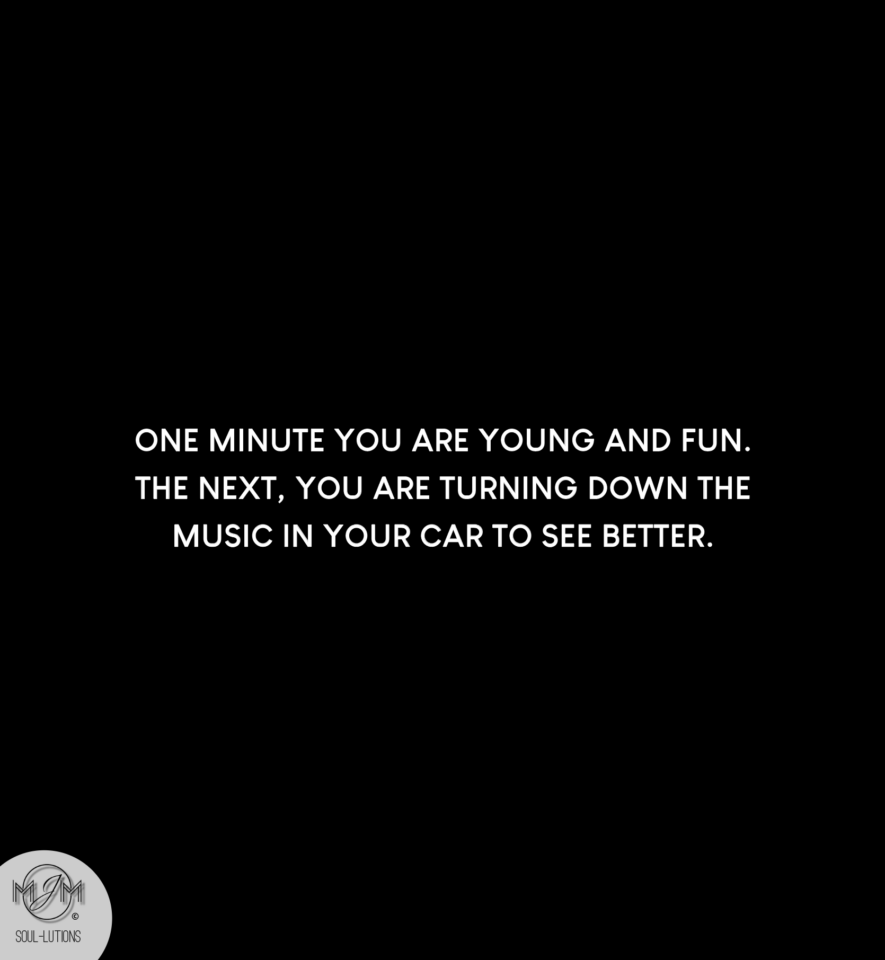
Statistics show us the world’s population is aging. Getting old is not so bad considering the alternative. So, let’s take a humorous look at aging, but first, a few statistics on aging.
In the United States, we have a group known as the Baby Boomers, people born in the years immediately after World War II from 1946-1964. This group accounts for a little more than a third of the US population. The oldest of the Baby Boomers turned 65 in 2011.
What is the definition of old? How old would you be if nobody told you how old you were? You probably have heard the expression; you are as old as you feel. Regardless, in the United States, 65 is the unofficial age of old because Medicare finally kicks in. I don’t like it!
Doing my research for this particular article, demographers often divide the older population into three stages. The young-old are age 65-74. This group is named the go-go years. People in this group are active and tend to do a lot of travel. The middle old is aged 75-84. This group is called the slow-go years. People in this group have become less active. The old-old group is aged 85 and older. This group is referred to as the no-go years because people in this group are least likely to be active. There are currently six million people in this age group and is the fastest-growing age group.
You know you are getting old when you notice these physical changes. It is not fair you finally get your head together and your body starts falling apart. You know you are getting old if it takes two tries to get off of the couch. It takes longer to rest than it did to get tired. It takes twice as long to look half as good. Everything hurts, and what doesn’t hurt doesn’t work. You give up all of your bad habits and still don’t feel good. You sit in a rocking chair and you can’t get it going. Rocking in a rocking chair feels like a roller coaster ride. Your knees buckle and your belt won’t. You have that morning-after feeling when you wake up but you didn’t party the night before.
You know you are getting old when you notice these attitudes and changes in behaviors. You have more patience, but it is actually that you don’t care anymore. You confuse a clear conscience with a bad memory. You sing along with elevator music because you hear your favorite song in the elevator. You stop searching for the meaning of life because you have to focus on searching for your car keys that are in your hand. You speed on the highway so you can reach your destination before you forget where you are going.
You know you are getting old when you notice these changes in other people. People call at 9 p.m. and ask, did I wake you. Your children begin to look middle-aged. Your friends marry and divorce instead of making out and breaking up. Your phone contacts have mostly names that begin with Doctor. The pharmacist has become your new best friend, and you are cautioned to slow down by the doctor instead of the police.
You know you are getting old when you notice these changes in your social life. Your idea of a night out is sitting on the patio. When you go out, your energy runs out before your money does. You look forward to a dull evening. You get two invitations for the same night out, and you pick the one that will get you home the earliest. Happy hour is a nap.
You know you are getting old when you have to call the grandkids for tech support. They ask you if you turned the computer off and then back on. You think a vine is something that grows in the garden. You think hooking up is a knitting technique.
Finally, you know you are getting old when the candles on your birthday cake cost more than the cake. Enjoy your coffee, and remember to laugh. “Is not wisdom found among the aged? Does not long-life bring understanding? Job 12:12.”
Remember to keep the circle positive, peaceful and loving. ©
Written with love.
Joy M. Mills (IP)
Copyright © 2020
MJM ®
**This article is not intended to provide and does not constitute medical, legal or other professional advice. This article was written to support, not replace medical or psychiatric treatment. Please seek professional care if you feel you have a condition.